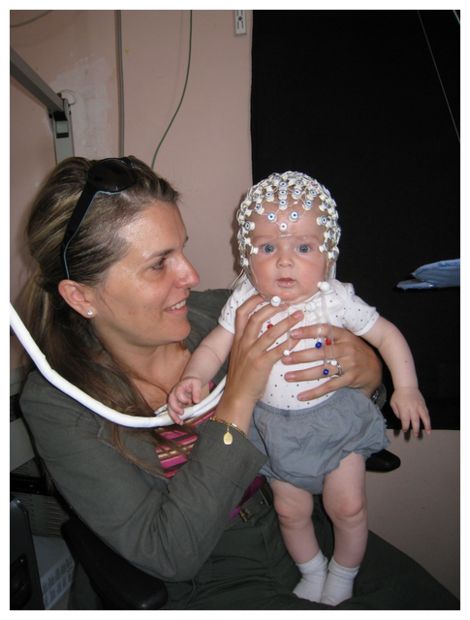
New parents may raise an eyebrow at the idea that their baby might not be a conscious being, but scientists have, until now, not been able to clearly show that infants react with awareness rather than reflexively.
Even in adults, much of the brain's processing of the world occurs without conscious awareness, said Sid Kouider, a neuroscientist at the Laboratoire de Sciences Cognitives et Psycholinguistique in Paris and the Technical University of Denmark.
One odd phenomenon, "blindsight," occurs in people with damage to part of their visual cortex. Although they cannot consciously see, they're able to "guess" the location of a visual stimulus or even catch objects tossed at them. Blindsight reveals that even unconscious processing in the brain can result in seemingly goal-directed behavior.
So when babies look toward a face or grasp an object, they, too, might be doing so without a conscious experience of what they're seeing.
"Infants might be responding in a kind of automatic manner," Kouider told LiveScience. Unfortunately, since babies don't talk, scientists can't test consciousness by asking infants what they experience.









